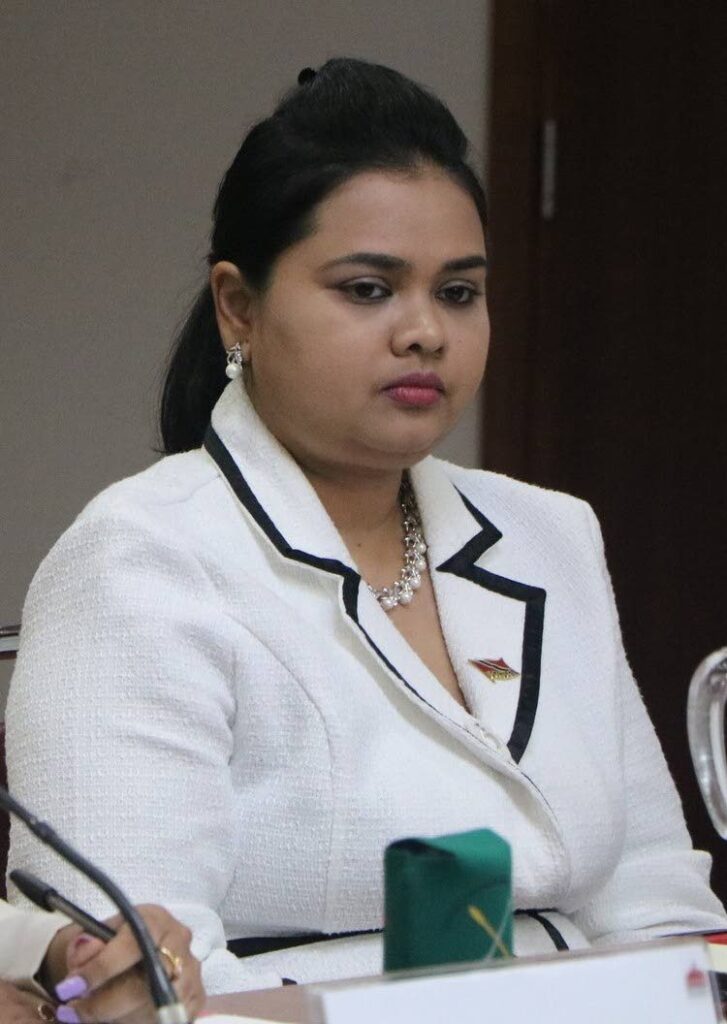JSC hears hundreds seeking to adopt

HUNDREDS of adults in Trinidad and Tobago want to adopt children in need of a safe home, but relatively few youngsters are available, a parliamentary committee learnt on Wednesday.
The Joint Select Committee (JSC) on Local Authorities, Service Commissions and Statutory Authorities (including the THA) – under Independent Senator Sunity Maharaj – met the Children's Authority and the Gender and Child Affairs Division of the Office of Prime Minister at the Cabildo Building, Port of Spain.
Vandana Siew Sankar-Ali, head of the authority's Children and Family Reintegration Services, revealed the disparity.
"We have received 535 applications for adoption over that (2015-2024) period of time.
"In terms of adoption orders that are finally granted, we have, for the same period, 124 adoption orders."
She said the 535 variously consisted of individuals who were approved, who were rejected or who dropped out.
Siew Sankar-Ali said the figure of 535 could also be classified as 226 "open cases" and 309 "closed cases."
"By open, we mean the child is already within the care of the adoptive parent, so they have applied to formalise that arrangement.
"A closed case is an application where you don't have a child in your care and you have asked for a child to be placed with you."
The authority's acting adoption manager Renee Neptune said the adoption process takes six-12 months, compared to one-two years previously.
"We do have 89 applications in queue, and all of these are with caseworkers and being processed presently."
She was asked if qualifications were needed to adopt.
Neptune said an adopter must be able to provide care for a child.
"So medically, physically, they have the familial support, they have the finances to provide for this child, as well as a home that is safe and sound."
The process involves home visits by the authority, background checks on the applicant and family members in the household, plus community checks.
Maharaj asked about an adopter's marital status, age, income, religion and sexual orientation.
Neptune said single people and cohabitants can adopt. There is no age limit but the authority must be given these details to help decide.
"With regard to sexual orientation, there is no discrimination. Again, all applications are processed and everything will be taken to our adoption committee, where it can be reviewed and discussed."
Asked by JSC member Laurence Hislop, Neptune said Amalgamated Security Services did background checks such as talking to the applicant's neighbours.
Children's Authority CEO Sheldon Cyrus said, "The security firm would do security checks and our professionals will do the psychosocial-type checks."
Replying to Hislop, Neptune said since 2015 only two adoptions were not granted, firstly owing to the adopter's lacking finances and family support, and secondly owing to a birth parent's objection.
Asked how many children were now available for adoption, Neptune said nine children were now in different stages of the process to be freed for adoption.
"We do have two sibling groups of older children." The first is a sibling-group of four with ages ranging from 13-eight, she said. The second group consists of two siblings, 12 and 13, who were freed for adoption and now awaiting suitable matches.
"However, what we have realised is that persons do not really wish to adopt older children, hence the reason they are still in the community residences. A lot of persons wish to adopt babies or toddlers.
"We have in our sensitisation sessions been informing the public that there are older children who can also be adopted and who are in need of a loving and caring home."
Asked if children in children's homes were available for adoption, Neptune said that entailed a lengthy legal process, including seeking out their birth parents to determine their views. She said such children tended to be older.
Neptune said 125 such children have been identified as possible candidates for adoption.
"Now that we have been doing the investigations, our list is presently at 73."
Pressed on sibling groups, she said, "We have had sibling groups of four, three, two adopted before. We try as best as possible to keep these siblings together."
JSC member Esmond Forde asked about follow-up after adoption.
Neptune said the law does not require post-adoption monitoring, but the good relationship between the authority and adopters meant after adoption the two stay in touch, such as the authority helping enrol youngsters at school and clinics.
"We liaise with them and they also liaise with us and send us pictures based on their developments, celebration of milestones. For Christmas we get pictures, first day of school."
Forde asked if follow-ups should be mandated by law.
Permanent secretary Vijay Gangapersad said several relevant laws on child welfare were now under review and the authority would make a recommendation on follow-ups by June.


Comments
"JSC hears hundreds seeking to adopt"